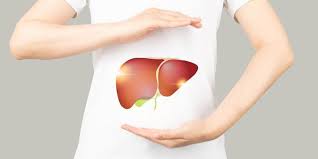
Breaking News
 The fraud being exposed in California is INSANE
The fraud being exposed in California is INSANE
 BlackRock Just Confirmed the Worst-Case Scenario
BlackRock Just Confirmed the Worst-Case Scenario
 You Don't Own Your Stocks the Way You Think You Do
You Don't Own Your Stocks the Way You Think You Do
 BLM 'KICKS BISON OFF THE LAND'? The Story the Headlines Didn't Tell
BLM 'KICKS BISON OFF THE LAND'? The Story the Headlines Didn't Tell
Top Tech News
 How underwater 3D printing could soon transform maritime construction
How underwater 3D printing could soon transform maritime construction
 Smart soldering iron packs a camera to show you what you're doing
Smart soldering iron packs a camera to show you what you're doing
 Look, no hands: Flying umbrella follows user through the rain
Look, no hands: Flying umbrella follows user through the rain
 Critical Linux Warning: 800,000 Devices Are EXPOSED
Critical Linux Warning: 800,000 Devices Are EXPOSED
 'Brave New World': IVF Company's Eugenics Tool Lets Couples Pick 'Best' Baby, Di
'Brave New World': IVF Company's Eugenics Tool Lets Couples Pick 'Best' Baby, Di
 The smartphone just fired a warning shot at the camera industry.
The smartphone just fired a warning shot at the camera industry.
 A revolutionary breakthrough in dental science is changing how we fight tooth decay
A revolutionary breakthrough in dental science is changing how we fight tooth decay
 Docan Energy "Panda": 32kWh for $2,530!
Docan Energy "Panda": 32kWh for $2,530!
 Rugged phone with multi-day battery life doubles as a 1080p projector
Rugged phone with multi-day battery life doubles as a 1080p projector
 4 Sisters Invent Electric Tractor with Mom and Dad and it's Selling in 5 Countries
4 Sisters Invent Electric Tractor with Mom and Dad and it's Selling in 5 Countries
Liver Injuries Reportedly on the Rise: Common, FDA-Approved Meds Linked to Alarming Trend

And a recent spate of reports highlights a particular danger for one part of your body: the liver.
"As cases of drug-induced liver injury (DILI) are on the rise, experts are warning of the hidden dangers associated with some common medications and supplements," Fox News reported Monday.
The outlet added, "Statistics show that DILI, also known as toxic hepatitis or hepatotoxicity — which is known to be a significant cause of acute liver failure — has been growing in Western countries since the 1960s."
"Even medications that have been tested for safety and approved by the U.S. Food and Drug Administration (FDA) can potentially cause liver injury in rare cases," Fox reported.
Just days earlier, on May 27, NBC News had posted a similarly alarming report regarding these health ramifications.
The outlet spoke to Robert Grafton, a former medical technologist who noticed signs of liver failure in himself and largely traced it back to various supplements and vitamins he had been taking.
"I stopped taking everything, thank goodness," Grafton said. "If I hadn't known, if I was not in the medical field, I might have thought, 'Oh, I think I'm getting sick. I need to take some more of these supplements to help me feel better.'"
Despite stopping, symptoms worsened and test results pointed toward devastating liver failure.
It turned out to be a case of DILI.
"It is estimated that between 13.9 and 19.1 cases of DILI occur for every 100,000 people, according to recent research published in the journal Toxicology Reports," Fox noted.
The triggers of DILI can vary, from the vitamins and supplements that Grafton had been taking, mentioned above, to aspirin, the common over-the-counter painkiller.
Those with health conditions are more susceptible to DILI, but as Grafton — someone who began taking his health seriously after having children — shows, it can hit very healthy people, too.



